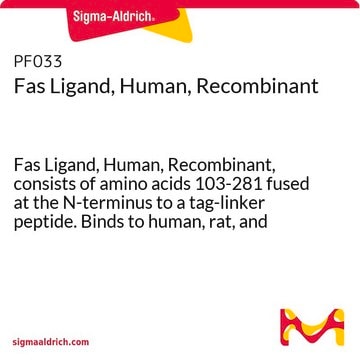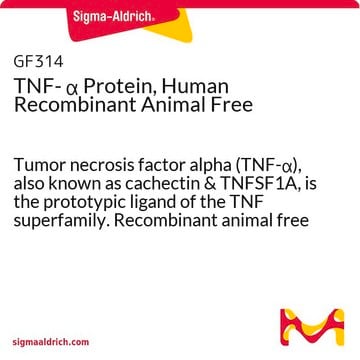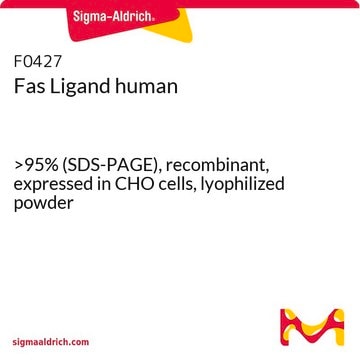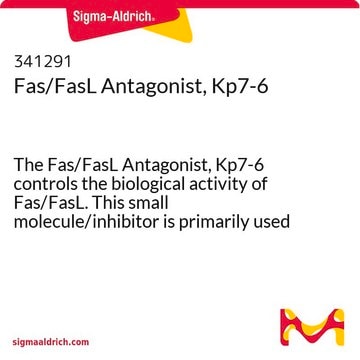Fontos dokumentumok
S8689
Fas Ligand, soluble human
recombinant, expressed in HEK 293 cells, lyophilized powder
Szinonimák:
SuperFas Ligand™
About This Item
Javasolt termékek
biológiai forrás
human
Minőségi szint
rekombináns
expressed in HEK 293 cells
Teszt
≥95% (SDS-GE)
form
lyophilized powder
molekulatömeg
32 kDa by SDS-PAGE (nonglycosylated form, under reducing conditions)
35 kDa by SDS-PAGE (glycosylated form, under reducing conditions)
technika/technikák
ligand binding assay: suitable
UniProt elérési szám
tárolási hőmérséklet
−20°C
Géninformáció
human ... FASLG(356)
Alkalmazás
Biokémiai/fiziológiai hatások
Jogi információk
Tárolási osztály kódja
11 - Combustible Solids
WGK
WGK 3
Lobbanási pont (F)
Not applicable
Lobbanási pont (C)
Not applicable
Analitikai tanúsítványok (COA)
Analitikai tanúsítványok (COA) keresése a termék sarzs-/tételszámának megadásával. A sarzs- és tételszámok a termék címkéjén találhatók, a „Lot” vagy „Batch” szavak után.
Már rendelkezik ezzel a termékkel?
Az Ön által nemrégiben megvásárolt termékekre vonatkozó dokumentumokat a Dokumentumtárban találja.
Tudóscsoportunk valamennyi kutatási területen rendelkezik tapasztalattal, beleértve az élettudományt, az anyagtudományt, a kémiai szintézist, a kromatográfiát, az analitikát és még sok más területet.
Lépjen kapcsolatba a szaktanácsadással








